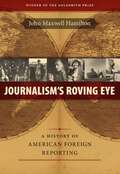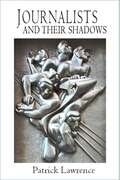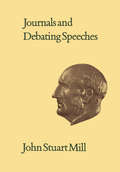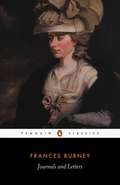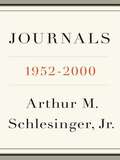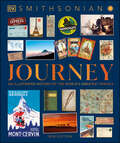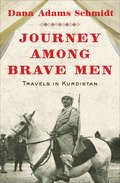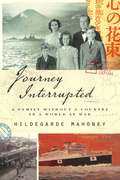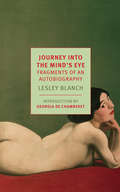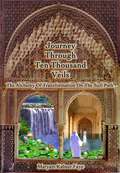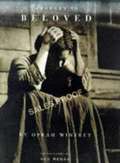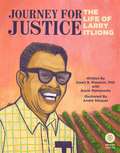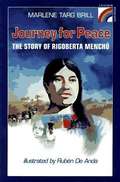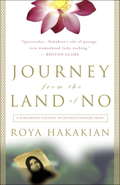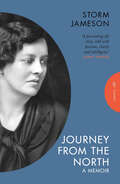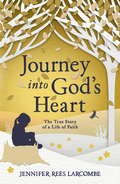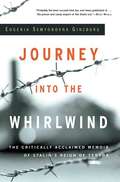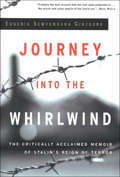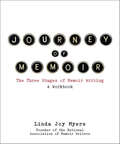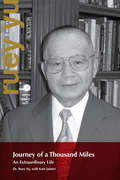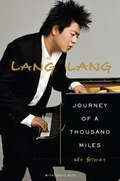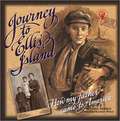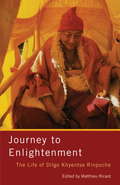- Table View
- List View
Journalism's Roving Eye: A History of American Foreign Reporting (From Our Own Correspondent)
by John Maxwell HamiltonIn all of journalism, nowhere are the stakes higher than in foreign news-gathering. For media owners, it is the most difficult type of reporting to finance; for editors, the hardest to oversee. Correspondents, roaming large swaths of the planet, must acquire expertise that home-based reporters take for granted -- facility with the local language, for instance, or an understanding of local cultures. Adding further to the challenges, they must put news of the world in context for an audience with little experience and often limited interest in foreign affairs -- a task made all the more daunting because of the consequence to national security. In Journalism's Roving Eye, John Maxwell Hamilton -- a historian and former foreign correspondent -- provides a sweeping and definitive history of American foreign news reporting from its inception to the present day and chronicles the economic and technological advances that have influenced overseas coverage, as well as the cavalcade of colorful personalities who shaped readers' perceptions of the world across two centuries.From the colonial era -- when newspaper printers hustled down to wharfs to collect mail and periodicals from incoming ships -- to the ongoing multimedia press coverage of the Iraq War, Hamilton explores journalism's constant -- and not always successful -- efforts at "dishing the foreign news," as James Gordon Bennett put it in the mid-nineteenth century to describe his approach in the New York Herald. He details the highly partisan coverage of the French Revolution, the early emergence of "special correspondents" and the challenges of organizing their efforts, the profound impact of the non-yellow press in the run-up to the Spanish-American War, the increasingly sophisticated machinery of propaganda and censorship that surfaced during World War I, and the "golden age" of foreign correspondence during the interwar period, when outlets for foreign news swelled and a large number of experienced, independent journalists circled the globe. From the Nazis' intimidation of reporters to the ways in which American popular opinion shaped coverage of Communist revolution and the Vietnam War, Hamilton covers every aspect of delivering foreign news to American doorsteps.Along the way, Hamilton singles out a fascinating cast of characters, among them Victor Lawson, the overlooked proprietor of the Chicago Daily News, who pioneered the concept of a foreign news service geared to American interests; Henry Morton Stanley, one of the first reporters to generate news on his own with his 1871 expedition to East Africa to "find Livingstone"; and Jack Belden, a forgotten brooding figure who exemplified the best in combat reporting. Hamilton details the experiences of correspondents, editors, owners, publishers, and network executives, as well as the political leaders who made the news and the technicians who invented ways to transmit it. Their stories bring the narrative to life in arresting detail and make this an indispensable book for anyone wanting to understand the evolution of foreign news-gathering. Amid the steep drop in the number of correspondents stationed abroad and the recent decline of the newspaper industry, many fear that foreign reporting will soon no longer exist. But as Hamilton shows in this magisterial work, traditional correspondence survives alongside a new type of reporting. Journalism's Roving Eye offers a keen understanding of the vicissitudes in foreign news, an understanding imperative to better seeing what lies ahead.
Journalists and Their Shadows
by Patrick LawrencePART MEMOIR, PART SOCIAL HISTORY, Journalists and Their Shadows captures the deplorable state of the American media in our time—recording its deterioration, its moments of crisis, and ultimately, its transformation as seen through the eyes of a journalist engaged at its very heart through all its phases. The press had a bad Cold War, Patrick Lawrence contends, and never recovered from it, having never acknowledged its errors and so unable to learn from them. Its dysfunctional relationship with the national security state today is strikingly reminiscent of how it was in the Cold War’s earliest days. With remarkable fidelity, all the old errors are being repeated. As a result, the mainstream American media have entered into a period of profound transformation, in the course of which independent media are emerging as the profession’s most dynamic sector—and represent, indeed, the promise of a brilliant future. A weave of three elements, Lawrence’s book offers a searing cultural and political critique, punctuated by the kind of piquant detail only insiders can provide. He also makes the case for a way forward—an optimistic case based on the vitality now apparent among independent media. Here, too, he is at home, providing the book’s most original coverage of this brave new world. He draws upon many years in the profession, a multitude of mainstream outlets ranging from his decades as foreign correspondent for the venerable International Herald Tribune to his work now as a columnist for a similar wide range of alternative news outlets such as Counterpunch and Consortium News. 'Shadows' probes the psychological dilemma that must be understood if we are to address the current crisis. Journalists in our time are divided within themselves—driven to meet thoroughly professional but ideologically conformist standards, but on the other, subliminally struggling to breach the barriers that preclude the truths they know should be conveyed. This latter, as Jung has put it, is the journalist’s shadow. Shadows’ case for the reintegration of the divided journalist is striking and original. This record of the American media’s increasingly shabby betrayal of the public trust sheds light on why the American public thought and thinks the way it does, how it has become aware that the truth it seeks is absent, and where and how it may yet be able to ferret it out. Here is a guide to the future, in fact, of journalism itself.
Journals and Debating Speeches: Volumes XXVI-XXVII
by John Stuart Mill John RobsonOne of the constant fascinations Mill holds for the general public as well as scholars derives from the early flowering of his genius. This development is seen in detail in the journal and notebook he kept in France during his fifteenth year, and in the debating speeches and walking-tour journals dating from his eighteenth to twenty-fourth years. This was the period when he first adopted Benthamism as 'a religion,' worked intensively as a propagandist for the faith, and then began the painful reassessment that led to his independent mature thought and action. Some of the results of that reassessment are seen in the diary entries from 1854, written for his wife, which reveal in personal form many of their most passionately held ideas. These materials have never before been gathered, and almost all appear here for the first time in scholarly form. They throw light on contemporary social interests and behavior, and will encourage new assessments of Mill’s life and thought. The texts, the great majority drawn from manuscripts, are presented in critical form, collated, with explanatory and textual notes. The Introduction gives the personal and historical context, with an analysis of content and rhetoric; the Textual Introduction supplies information about the nature and history of the documents, while Appendices provide ancillary materials. Both bibliographic and analytic indexes are included.
Journals and Letters: The Streatham Years, Part Ii, 1780-1781
by Frances BurneyNovelist and playwright Frances (Fanny) Burney, 1752-1840, was also a prolific writer of journals and letters, beginning with the diary she started at fifteen and continuing until the end of her eventful life. From her youth in London high society to a period in the court of Queen Charlotte and her years interned in France with her husband Alexandre d'Arblay during the Napoleonic Wars, she captured the changing times around her, creating brilliantly comic and candid portraits of those she encountered - including the 'mad' King George, Samuel Johnson, Sir Joshua Reynolds, David Garrick and a charismatic Napoleon Bonaparte. She also describes, in her most moving piece, undergoing a mastectomy at fifty-nine without anaesthetic. Whether a carefree young girl or a mature woman, Fanny Burney's forthright, intimate and wickedly perceptive voice brings her world powerfully to life.
Journals: 1952-2000
by Arthur M. Schlesinger Jr.From his entrance into Democratic leadership circles in the 1950s through his years in the Kennedy administration and up until his last days, Arthur Schlesinger, Jr., was always at the vital center of American politics. For more than half a century, the master historian recorded his experiences and opinions in journals that together form an intimate chronicle of life at the highest levels of American politics and culture in postwar America. This extraordinary volume contains his candid thoughts about the signal events of our time, from the Bay of Pigs to the devastating assassinations of the 1960s, from Vietnam to Watergate, and from the fall of the Soviet Union to Bush v. Gore. Filled with Schlesinger?s trademark acerbic wit and tremendous insight, Journals is a fitting tribute to a most remarkable American life.
Journey (DK Definitive Visual Histories)
by DKFollow the voyages of the Vikings, pursue plundering pirates, trace the Hippie Trail, or set off on a flight to the Moon. A thrilling expedition awaits you on every page.Journeys have arisen from all manner of impulse, from migration and the search for food to pilgrimages, trade, scientific curiosity, or simply the quest for adventure.Packed with stories of human movement and endeavor, Journey lets you experience the excitement and romance of travel, covering everything from quests across the Silk Road and the adventures of Marco Polo to explorations in space and underwater. Discover ancient maps, biographies of conquerors, explorers and travelers, stories of scientific discovery and technological innovation, stunning works of art, and catalogs of travel-related memorabilia.This truly worldwide account is a glorious celebration of human journeys and will make an impressive gift for any lover of travel and history.
Journey Among Brave Men
by Dana Adams SchmidtA gripping account of an award-winning journalist&’s journey into the heart of rebel territory during the First Iraqi-Kurdish War. On July 4, 1962, New York Times foreign correspondent Dana Adams Schmidt left his post in Beirut to be voluntarily smuggled into Iraqi Kurdistan. It was the beginning of a nearly two-month journey that would climax in a days-long visit with the leader of the Kurdish rebellion, the most loved and feared man in Kurdistan, Mullah Mustafa Barzani. Accompanied by armed Kurdish guides and a 72-year-old Turkish interpreter, the six-feet-three-inch, seersucker-suit-clad Schmidt traveled, often at night, a secret route by foot, mule, horse and, on two occasions, jeep into the high Kurdish mountains to report on &“the fightingest people in the Middle East&” as no foreign journalist had done before. The physical dangers were acute—his group was strafed more than once by the Iraqi air force. Along the way, Schmidt learned about the history and culture of the Kurds, whose cause Barzani hoped Schmidt could convey to the world. Originally published in 1964 and now back in print with a new foreword by historian Charles Glass, Journey Among Brave Men is an enduring testament to the power of audacious journalism and to the strong will of the Kurds, an embattled people who remain in search of an independent state today. &“One can only marvel at the author&’s indefatigable industry and power of enthusiasm, which makes him one of the most reliable of all daily paper reporters . . . An excellent, fair and patently honest piece of work.&”—The New York Times
Journey Interrupted: A Family Without a Country in a World at War
by Hildegarde MahoneyIn the midst of World War II, a German-American family finds themselves stranded in Japan in this inspiring tale of an extraordinary family adapting to the hazards of fate, and finding salvation in each other. In the spring of 1941, seven-year-old Hildegarde Ercklentz and her family leave their home in New York City and set off for their native Germany, where her father has been recalled to the headquarters of the Commerz & Privat Bank in Berlin. It was meant to be an epic journey, crossing the United States, the Pacific, and Siberia--but when Hitler invades Russia, a week-long stay in Yokohama, Japan becomes six years of quasi-detention, as Hildegarde and her family are stranded in Japan until the war's end. In this spellbinding memoir, Mahoney recounts her family's moving saga, from their courage in the face of terrible difficulties--including forced relocation, scarce rations, brutal winters in the Japanese Alps--to their joyous reunion with their German relatives in Hamburg, and their eventual return to New York City in 1950. Richly detailed and remarkably vivid, Journey Interrupted is a story unlike any other--the inspiring tale of an extraordinary family adapting to the hazards of fate, and finding salvation in each other.
Journey Into the Mind's Eye: Fragments of an Autobiography
by Lesley Blanch Georgia De ChamberetA stunning tale set in England, Paris, and Moscow, chronicling Blanch's love for an older Russian man and the passionate obsession that takes her to Siberia and beyond.“My book is not altogether autobiography, nor altogether travel or history either. You will just have to invent a new category,” Lesley Blanch wrote about Journey into the Mind’s Eye, a book that remains as singularly adventurous and intoxicating now as when it first came out in 1968. Russia seized Lesley Blanch when she was still a child. A mysterious traveler—swathed in Siberian furs, bearing Fabergé eggs and icons as gifts along with Russian fairy tales and fairy tales of Russia—came to visit her parents and left her starry-eyed. Years later the same man returned to sweep her off her feet. Her love affair with the Traveller, as she calls him, transformed her life and fueled an abiding fascination with Russia and Russian culture, one that would lead her to dingy apartments reeking of cabbage soup and piroshki on the outskirts of Paris in the 1960s, and to Siberia and beyond.
Journey Out of Silence
by Dora Tingelstad WeberThe author encourages those who are not hearing-impaired to increase their sensitivity to those who are.
Journey Through Ten Thousand Veils
by Maryam Kabeer FayeA Journey Through Ten Thousand Veils is an in-depth account of the journey of the soul on the path of return to its Lord. Sheikha Maryam Kabeer was guided on her journey of profound transformation and illumination to meet and be guided by Awakened Spiritual Masters on the path of awakening, leading to the realization of the deep truth that all lives are interconnected by the Grace and in the Presence of the One Exalted Creator of them all. Born into a liberal Jewish family in Hollywood, she was guided to Berkeley, and then to Afghanistan, India, Nepal, and monasteries in Europe, ultimately to embrace Islam in Hebron (El Khalil), near Jerusalem. In following the example of Abraham (a.s.), Father of all the monotheistic religions, and while praying in the blessed Masjid al Aqsa, in which the spirits of all the Prophets (as) are assembled in eternal prayer and unity, in her spiritual practice, she was guided to penetrate the myth that there must be conflict between the descendants of the great servant of God, who was sent by the Creator, as were all the Prophets (as) to guide humanity to His Path of Truth. This book is a significant and revealing social and spiritual commentary, which dispels, as well, many other myths and stereotypes, such as the proposition that women are oppressed in Islam. On the contrary, it is by entering into the heart of Islam, guided by the Divine Light transmitted through great Spiritual Masters, that she was liberated, elevated, and blessed to serve the Creator and His creation with ever deeper sincerity and illumined faith.Travel with her on her epic journey in order to gain the knowledge that may also set you free.
Journey To Beloved
by Oprah Winfrey Ken ReganOf all the events in Oprah Winfrey's life, none has affected her as powerfully as playing the part of Sethe, the former slave who must come to terms with a haunting past, in Jonathan Demme's film of Toni Morrison's Pulitzer Prize-winning novel -- coming from Touchstone Pictures in Fall 1998. Oprah fell in love with the book when it was first published in 1988, and instantly became determined to deliver this powerful story to film herself. But making the movie was something even more profound than she might have imagined, and "Journey to Beloved" is her own emotional account of that experience. With Oprah's heartfelt words and the evocative images of Ken Regan, "Journey to Beloved" is an elegant book that will interest fans of Oprah, of Toni Morrison, and of fine filmmaking. Accompanying Oprah's personal journals and thoughts about the Beloved experience is a foreword by Jonathan Demme and a chorus of voices, from Danny Glover, Thandie Newton, Kimberley Elise, and Beah Richards. The result is a tribute to a courageous work of art, expressed as only Oprah can express it.
Journey for Justice: The Life of Larry Itliong
by Gayle Romasanta Dawn Mabalon Andre SibayanThis book, written by historian Dawn Bohulano Mabalon with writer Gayle Romasanta, richly illustrated by Andre Sibayan, tells the story of Larry Itliong's lifelong fight for a farmworkers union, and the birth of one of the most significant American social movements of all time, the farmworker's struggle, and its most enduring union, the United Farm Workers.
Journey for Peace: The Story of Rigoberta Menchu
by Marlene Targ BrillThis biography of Rigoberta Menchu, winner of the 1992 Nobel Peace Prize, discusses her life in a remote Guatemalan village, her dealings with cruel, rich landowners, and her fight for justice.
Journey from the Land of No: A Girlhood Caught in Revolutionary Iran
by Roya Hakakian"We stormed every classroom, inscribed our slogans on the blackboard . . . Never had mayhem brought more peace. All our lives we had been taught the virtues of behaving, and now we were discovering the importance of misbehaving. Too much fear had tainted our days. Too many afternoons had passed in silence, listening to a fanatic's diatribes. We were rebelling because we were not evil, we had not sinned, and we knew nothing of the apocalypse. . . . This was 1979, the year that showed us we could make our own destinies. We were rebelling because rebelling was all we could do to quell the rage in our teenage veins. Together as girls we found the courage we had been told was not in us." In Journey from the Land of No Roya Hakakian recalls her childhood and adolescence in pre-revolutionary Iran with candor and verve. The result is a beautifully written coming-of-age story about one deeply intelligent and perceptive girl's attempt to find an authentic voice of her own at a time of cultural closing and repression. Remarkably, she manages to re-create a time and place dominated by religious fanaticism, violence, and fear with an open heart and often with great humor. Hakakian was twelve years old in 1979 when the revolution swept through Tehran. The daughter of an esteemed poet, she grew up in a household that hummed with intellectual life. Family gatherings were punctuated by witty, satirical exchanges and spontaneous recitations of poetry. But the Hakakians were also part of the very small Jewish population in Iran who witnessed the iron fist of the Islamic fundamentalists increasingly tightening its grip. It is with the innocent confusion of youth that Roya describes her discovery of a swastika--"a plus sign gone awry, a dark reptile with four hungry claws"--painted on the wall near her home. As a schoolgirl she watched as friends accused of reading blasphemous books were escorted from class by Islamic Society guards, never to return. Only much later did Roya learn that she was spared a similar fate because her teacher admired her writing. Hakakian relates in the most poignant, and at times painful, ways what life was like for women after the country fell into the hands of Islamic fundamentalists who had declared an insidious war against them, but we see it all through the eyes of a strong, youthful optimist who somehow came up in the world believing that she was different, knowing she was special. At her loneliest, Roya discovers the consolations of writing while sitting on the rooftop of her house late at night. There, "pen in hand, I led my own chorus of words, with a melody of my own making." And she discovers the craft that would ultimately enable her to find her own voice and become her own person. A wonderfully evocative story, Journey from the Land of No reveals an Iran most readers have not encountered and marks the debut of a stunning new talent.
Journey from the North: A Memoir
by Storm JamesonOne of the 20th century's finest memoirs of literary and political life, with an introduction by Vivian Gornick, who referred to the book as &“literary gold&”&“Stops you in your tracks. I would like to persuade everyone to read it&” — Sunday TimesA compulsively readable, beautifully written account of a fascinating twentieth-century woman and life. This candid, affecting portrait of a woman who loathed domesticity explores how she sought to balance a literary career with political commitment.Towards the end of her life, the writer Storm Jameson began her memoir by asking, &“can I make sense of my life?&” This question propelled her through an extraordinary reckoning with how she had lived: her early years in Whitby, shadowed by her tempestuous, dissatisfied mother; an early, unhappy marriage and repeated flights from settled domesticity; a tenaciously pursued literary career, always dogged by a lack of money; and her lifelong political activism, including as the first female president of English PEN, helping refugees escape Nazi Germany.In a richly ironic, conversational voice, Jameson tells also of the great figures she knew and events she witnessed: encounters with H.G. Wells and Rose Macaulay, travels in Europe as fascism was rising and a 1945 trip to recently liberated Warsaw. Throughout, she casts an unsparing eye on her own motivations and psychology, providing a rigorously candid and lively portrait of her life and times.
Journey into God's Heart: The True Story of a Life of Faith
by Jennifer Rees LarcombeEven Jennifer herself has in the light of severe recent tragedies found herself gaining a new understanding of all she has been through. This book looks back at the traumas and insecurities of her childhood, the joys and trials of family life through the most testing of circumstances, the confusion caused by her life-threatening illness and subsequent miracle healing, the pain of bereavement and - the most recent chapter that no-one foresaw - divorce from her husband Tony.Journey Into God's Heart is an epic saga of a unique woman's journey through the fire. An adventure that lasts a lifetime, a path strewn with heart-testing challenges.Written as compellingly as a novel, it presents a completely new perspective on the story told in Jennifer's previous autobiographical books Beyond Healing and Unexpected Healing. Her journey unfolds against the backdrop of the momentous changes undergone by the evangelical and charismatic church in the mid and late twentieth century.
Journey into God's Heart: The True Story of a Life of Faith
by Jennifer Rees LarcombeEven Jennifer herself has in the light of severe recent tragedies found herself gaining a new understanding of all she has been through. This book looks back at the traumas and insecurities of her childhood, the joys and trials of family life through the most testing of circumstances, the confusion caused by her life-threatening illness and subsequent miracle healing, the pain of bereavement and - the most recent chapter that no-one foresaw - divorce from her husband Tony.Journey Into God's Heart is an epic saga of a unique woman's journey through the fire. An adventure that lasts a lifetime, a path strewn with heart-testing challenges.Written as compellingly as a novel, it presents a completely new perspective on the story told in Jennifer's previous autobiographical books Beyond Healing and Unexpected Healing. Her journey unfolds against the backdrop of the momentous changes undergone by the evangelical and charismatic church in the mid and late twentieth century.
Journey into the Whirlwind
by Eugenia S. GinzburgBoth witness to and victim of Stalin's reign of terror, a courageous woman tells the story of her harrowing eighteen-year odyssey through Russia's prisons and labor camps.
Journey into the Whirlwind: The Critically Acclaimed Memoir of Stalin's Reign of Terror
by Eugenia Semyonovna GinzburgA woman&’s true account of eighteen years as a Soviet prisoner: &“Not even Alexander Solzhenitsyn&’s One Day in the Life of Ivan Denisovich matches it.&”—The New York Times Book Review In the late 1930s, Eugenia Ginzburg was a wife and mother, a schoolteacher and writer, and a longtime loyal Communist Party member. But like millions of others during Stalin&’s reign of terror, she was arrested—on trumped-up charges of being a Trotskyist terrorist counter-revolutionary—and sentenced to prison. With sharp detail and an indefatigable spirit, Ginzburg recounts her arrest and the eighteen harrowing years she endured in Soviet prisons and labor camps, including two in solitary confinement. Her memoir is &“a compelling personal narrative of survival&” (The New York Times Book Review)—and one of the most important documents of Stalin&’s brutal regime. &“Deeply significant…intensely personal and passionately felt.&”—Time &“Probably the best account that has ever been published of…the prison and camp empire of the Stalin era.&”—Book WorldTranslated by Paul Stevenson and Max Hayward
Journey of Memoir: The Three Stages of Memoir Writing
by Linda Joy MyersIn Journey of Memoir you will find lessons on how to write a great scene; information on the difference between freewriting and outlining, and why you need both; timeline and turning point exercises to help create structure; and much more. This unique workbook gives you the tools you need to begin, develop, and complete your memoir.
Journey of a Thousand Miles: An Extraordinary Life (Biographies et mémoires)
by Dr. Ruey J. YuBorn into poverty in Japanese-occupied Taiwan, Ruey Yu overcame near-starvation during the Second World War. Destiny, however, had other plans for him: he was to become an award-winning biochemist, then the co-founder of what would soon become the multi-million-dollar skin care company NeoStrata. After living through the Second World War and the post-war military dictatorship of General Chiang Kai-Shek, Dr. Yu won a coveted post-graduate scholarship to study chemistry at the University of Ottawa. He subsequently took up a research position at the renowned Skin and Cancer Hospital (Temple University) in Philadelphia, where he collaborated with pre-eminent dermatologist Dr. Eugene Van Scott to develop treatments for serious skin diseases. In 1972, Dr. Yu and Dr. Van Scott discovered that fruit acids, known as AHAs, could effectively treat the disfiguring skin disease ichthyosis, changing the lives of thousands of people who suffered from this debilitating illness. Their further research into the biochemical properties of AHAs led to the discovery of the anti-wrinkle and anti-aging effects of these natural substances—a discovery that was licensed by skin care companies around the world, sparking the multibillion-dollar cosmeceutical industry.
Journey of a Thousand Miles: My Story
by David Ritz Lang LangJourney of a Thousand Miles tells the remarkable story of a boy who sacrificed almost everything -- family, financial security, childhood, his reputation in China's insular classical music world -- to fulfil his promise as a classical pianist. Lang Lang was born in Shenyang in north-eastern China just after the end of the Cultural Revolution. He began piano lessons at three and by ten had been awarded a place at the Central Conservatory of Music in Beijing. In order to continue his studies he moved thousands of miles from home, living with his exacting father in a cramped, shared apartment, while his mother stayed at home to earn the money to pay his fees. Lang Lang reveals that his father's ruthless discipline reflects a national obsession with winning at all costs. At fifteen he moved to the United States to take up a scholarship at the Curtis Institute in Philadelphia; by nineteen he was selling out Carnegie Hall. His tutor and mentor Daniel Barenboim has described him as 'extraordinarily talented'. Now twenty-six, Lang Lang tours relentlessly, delighting sell-out audiences with his trademark flamboyance and showmanship. His inspiring story demonstrates the courage and self-sacrifice required to achieve artistic greatness.
Journey to Ellis Island: How My Father Came to America
by Carol BiermanAfter trekking across Europe and making it to Ellis Island on the Rotterdam in 1922, young Yehuda Weinstein, his mother, and his younger sister are almost turned away by immigration because he is wearing a sling, when fate intervenes.
Journey to Enlightenment: The Life of Dilgo Khyentse Rinpoche
by Matthieu RicardAn inspiring portrait of one of the great spiritual leaders of the twentieth century, this book follows Dilgo Khyentse Rinpoche in his travels to Tibet, Bhutan, India, and Nepal, revisiting important places from his past. His birthplace in eastern Tibet, the monastery of Shechen that he entered at age eleven, the retreat grounds where he spent years in meditation and study--these are some of the stops along the way. Told in intimate detail by his personal assistant, Matthieu Ricard, this condensed biographical narrative integrates extensive passages from the writings and teachings of the master himself to impart a rare view of his journey to enlightenment.Note: This edition, excerpted from the first volume of The Collected Works of Dilgo Khyentse, is an abridged adaptation of the heavily photographed, full-color Aperture edition from 1996. It contains 36 black-and-white photographs.
